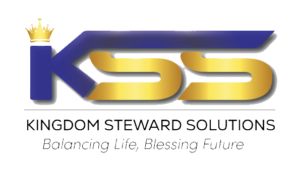(214) 245-7271
Personal Financial Literacy
Financial Literacy Made Easy: Unlock Your Money Potential

“I’m just not good with money.”
How many times have you heard someone say that? Maybe you've even said it yourself. There’s a particular sting in those words, isn’t there? Like a resigned sigh that carries years of financial missteps, confusion, or even shame. But let’s get something straight right from the start: “good with money” isn’t some innate talent you either have or don’t. It’s a skill—and like any skill, it can be learned, refined, and mastered.
Still, the gap between where you are and where you want to be can feel enormous. You might be juggling credit card debt, unsure how to save for emergencies, or baffled by the sheer complexity of investing. It’s overwhelming—but that feeling isn’t a sign you’re failing. It’s a sign you’re human.
Take Sarah, for example. She’s a graphic designer in her mid-30s who makes decent money but always feels like she’s living paycheck to paycheck. She avoids looking at her bank balance because it’s just too stressful. Retirement? Feels too far off to worry about. And yet, deep down, she knows this avoidance isn’t working. She wants to feel in control, to stop the cycle of worry and guilt, but she doesn’t even know where to start.
Sound familiar? If it does, don’t worry. You’re not alone, and you’re not stuck.
Understanding the Root of the Problem
Before we dive into solutions, let’s unpack why personal finance feels so daunting. For one, money is deeply emotional. It’s tied to our sense of security, our dreams, and even our self-worth. Growing up, maybe you heard your parents argue about money, or maybe no one talked about it at all. Either way, many of us enter adulthood with little more than a “just figure it out” mentality, which is about as helpful as being tossed into the deep end of a pool without knowing how to swim.
Then there’s the sheer volume of financial advice out there. It’s contradictory, confusing, and often unrealistic. One expert says to skip your daily latte to save for retirement. Another insists you need to invest in crypto to “get ahead.” And let’s be real: none of this advice considers the nuances of your life. Your goals, your struggles, your unique situation.
So where do you begin when it all feels like too much?
Start with Awareness
Here’s the thing about money: it doesn’t have to be scary, but it does demand your attention. And the first step to taking control is simply knowing where you stand. That means sitting down with your finances—yes, even if it makes you cringe—and getting clear on what’s coming in, what’s going out, and what’s left (or not).
Think of it like stepping on a scale. It’s not about judgment; it’s about awareness. You can’t improve what you don’t understand. And once you’ve faced those numbers, you might find they’re not as terrifying as you’d imagined. Or, if they are, that’s okay too. At least now you know, and knowledge is power.
Set Small, Meaningful Goals
Here’s where a lot of people get tripped up: they try to overhaul everything all at once. They decide they’re going to pay off all their debt, build a six-month emergency fund, and max out their retirement accounts—all by next Tuesday. That’s a recipe for burnout.
Instead, think small. What’s one thing you can do this week to move the needle? Maybe it’s setting up automatic transfers to a savings account, even if it’s just $20 a paycheck. Maybe it’s committing to tracking your spending for a month to see where your money really goes. Whatever it is, keep it manageable. Progress, not perfection, is the goal.
The Power of Habits
Here’s a little secret: financial success isn’t about big, dramatic actions. It’s about small, consistent habits. Think about it like brushing your teeth. You don’t skip brushing for months and then spend an entire day scrubbing to make up for it. Money works the same way. The more you build good habits into your daily life, the less effort it takes to maintain them over time.
One of the simplest, most effective habits? Pay yourself first. That means treating savings as a non-negotiable expense, just like rent or utilities. The moment your paycheck hits, move a set amount into savings or investments. Automate it so you don’t even have to think about it. Out of sight, out of mind, and your future self will thank you.
Shifting Your Mindset
A big part of getting “good with money” is changing how you think about it. For Sarah, money felt like a source of stress and scarcity. But what if she reframed it as a tool—one that could help her build the life she wants? That shift doesn’t happen overnight, but it starts with small changes in how you talk to yourself. Instead of saying, “I’ll never get out of debt,” try, “I’m making progress, even if it’s slow.”
Language matters. The stories you tell yourself about money shape your reality. Start telling a better story.
Practical Tools and Resources
While mindset and habits are crucial, let’s not ignore the practical side of things. There are countless tools out there designed to make managing money easier. Budgeting apps like YNAB (You Need A Budget) or Mint can help you track your spending and stay organized. High-yield savings accounts can maximize your emergency fund. And if investing feels overwhelming, platforms like Betterment or Vanguard offer user-friendly ways to get started.
The key is finding what works for you. Don’t feel pressured to use every tool or follow every piece of advice. Pick a few strategies that resonate and build from there.
Finding Support
Here’s another truth: you don’t have to do this alone. Whether it’s talking to a financial planner, joining a money-savvy community online, or simply confiding in a trusted friend, support makes a world of difference. Money can feel isolating, but you’d be surprised how many people share your struggles.
Even Sarah, who once felt hopeless about her finances, found relief in simply opening up to a friend. Together, they swapped tips, shared wins, and celebrated progress. Sometimes, just knowing you’re not alone can lighten the load.
Looking Forward
So here you are, at the edge of a new chapter. Maybe it still feels a little daunting, but that’s okay. Change is rarely comfortable, but it’s always possible. Remember: you don’t have to have it all figured out today. Start where you are. Take one step, then another.
The path to financial confidence isn’t a straight line, and it’s not about perfection. It’s about progress, persistence, and a little bit of faith in yourself. Because you’re not just “not good with money.” You’re learning. You’re growing. And you’re capable of far more than you think.
Kingdom Steward Solutions
At our company, we help families through a clear and effective five-step process
Our practical steps at Kingdom Steward solutions aim to cultivate a comprehensive approach to living a balanced, purposeful, and fulfilling life. Our section is designed to not only educate but also to empower individuals to take control of all aspects of their well-being.

Personal Finance Education
If you’ve ever felt that pang of frustration while grappling with a budget, wrestling with debt, or trying to decode your credit score, you’re not alone.

Personal Financial Literacy
“I’m just not good with money.”
How many times have you heard someone say that? Maybe you've even said it yourself. There’s a particular sting in those words, isn’t there?

Financial Education Online
“Why does learning about money always feel so overwhelming? I want to understand it, but every time I try, I’m either bored to tears or completely lost.”
If that thought has ever crossed your mind, you’re not alone.

Financial Literacy for Youth
“Why didn’t anyone teach me this stuff in school?”
It’s a phrase we’ve all heard. Maybe you’ve said it yourself while staring at a credit card statement, scratching your head over compound interest,

Empowering Youth for Life
I believe in empowering future generations with the skills they need to thrive. As a parent and educator, I am deeply concerned about the challenges facing our youth and how we can better prepare them for their futures.

About Liwei
Liwei McBain's journey from a language educator to a transformative financial literacy mentor is fueled by her belief in empowering individuals to live a life with purpose and wisdom. With a Master's degree in Applied Linguistics and nearly two decades in language and cultural education, Liwei has always been passionate about teaching. Her motto, "Teach a man to fish, rather than give him fish," perfectly captures her approach to financial education.
Determined to make a significant impact, Liwei has expanded her teaching to financial literacy, addressing a crucial gap often overlooked by traditional financial institutions. She’s not just teaching people how to save and manage money, but also how to grow their wealth and make informed decisions that transform their lives.
Liwei Mc'Bain
Contact
3242 Preston Rd,
Suite 100
Plano
TX 75093
(214) 245-7271
Hours
Monday - Friday
08:30 - 18:00
Saturday
08:30 - 18:00
Sunday
Closed
NAVIGATION
HELPFUL LINKS
STEWARDSHIP SOLUTIONS
© Copyright KSS LLC. All Rights Reserved

